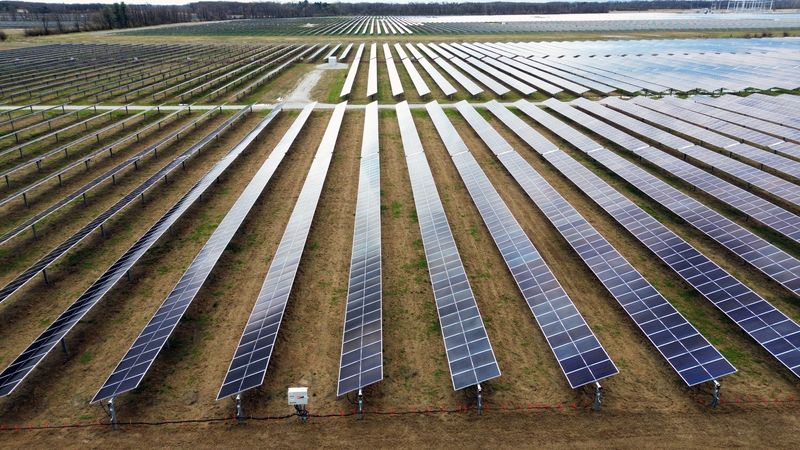
(Reuters) – Solar panel prices could increase by as much as 66% if the U.S. puts new tariffs on imports from Southeast Asia, threatening the nation’s goals for an energy source critical to combating climate change, according to an analysis published on Tuesday.
The report by Clean Energy Associates, an industry supply chain advisory firm, is among the first to study the potential impacts of what would be new duties on solar cells and modules from Malaysia, Cambodia, Vietnam and Thailand.
Some of the world’s biggest solar equipment makers in April asked President Joe Biden’s administration to impose tariffs on those imports to protect billions of dollars in investments in U.S. manufacturing.
Biden’s landmark climate change law, the Inflation Reduction Act, includes big incentives for companies that produce clean energy equipment in the United States and has touched off a boom in plans for domestic solar factories.
According to CEA’s analysis of the proposed tariffs, prices on U.S.-made solar panels could rise by 10 cents per watt, or 45%, to 32 cents per watt, while the cost of imported modules could soar by 15 cents per watt, or 66%, to 40 cents per watt.
Costs that high would make it much harder for solar projects to make money and could threaten U.S. goals of deploying enough solar to make a meaningful dent in greenhouse gas emissions, the firm said.

The U.S. must have 500 gigawatts (GW) of solar installed by 2030 to meet its climate goals, according to many models, compared with the 177 GW it had at the end of 2023, CEA said.
U.S. panel factories need imports of solar cells from Southeast Asia because there is currently no domestic cell supply, CEA said.
This post is originally published on INVESTING.


